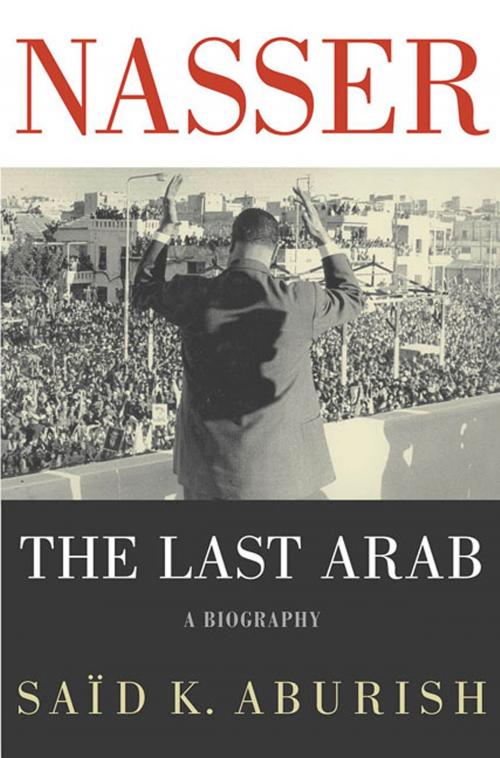| Author: | Said K. Aburish | ISBN: | 9781466856165 |
| Publisher: | St. Martin's Press | Publication: | November 5, 2013 |
| Imprint: | Thomas Dunne Books | Language: | English |
| Author: | Said K. Aburish |
| ISBN: | 9781466856165 |
| Publisher: | St. Martin's Press |
| Publication: | November 5, 2013 |
| Imprint: | Thomas Dunne Books |
| Language: | English |
Since the death of Egyptian president Gamal Abdel Nasser in 1970 there has been no ideology to capture the imagination of the Arab world except Islamic fundamentalism. Any sense of completely secular Arab states ended with him and what we see today happening in the Middle East is a direct result of Western opposition to Nasser's strategies and ideals.
Nasser is a fascinating figure fraught with dilemmas. With the CIA continually trying to undermine him, Nasser threw his lot in with the Soviet Union, even though he was fervently anti-Communist. Nasser wanted to build up a military on par with Israel's, but didn't want either the '56 or '67 wars. This was a man who was a dictator, but also a popular leader with an ideology which appealed to most of the Arab people and bound them together. While he was alive, there was a brief chance of actual Arab unity producing common, honest, and incorruptible governments throughout the region.
More than ever, the Arab world is anti-Western and teetering on disaster, and this examination of Nasser's life is tantamount to understanding whether the interests of the West and the Arab world are reconcilable.
Nasser is a definitive and engaging portrait of a man who stood at the center of this continuing clash in the Middle East.
Since the death of Egyptian president Gamal Abdel Nasser in 1970 there has been no ideology to capture the imagination of the Arab world except Islamic fundamentalism. Any sense of completely secular Arab states ended with him and what we see today happening in the Middle East is a direct result of Western opposition to Nasser's strategies and ideals.
Nasser is a fascinating figure fraught with dilemmas. With the CIA continually trying to undermine him, Nasser threw his lot in with the Soviet Union, even though he was fervently anti-Communist. Nasser wanted to build up a military on par with Israel's, but didn't want either the '56 or '67 wars. This was a man who was a dictator, but also a popular leader with an ideology which appealed to most of the Arab people and bound them together. While he was alive, there was a brief chance of actual Arab unity producing common, honest, and incorruptible governments throughout the region.
More than ever, the Arab world is anti-Western and teetering on disaster, and this examination of Nasser's life is tantamount to understanding whether the interests of the West and the Arab world are reconcilable.
Nasser is a definitive and engaging portrait of a man who stood at the center of this continuing clash in the Middle East.















